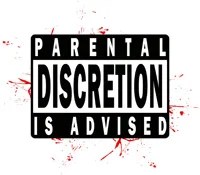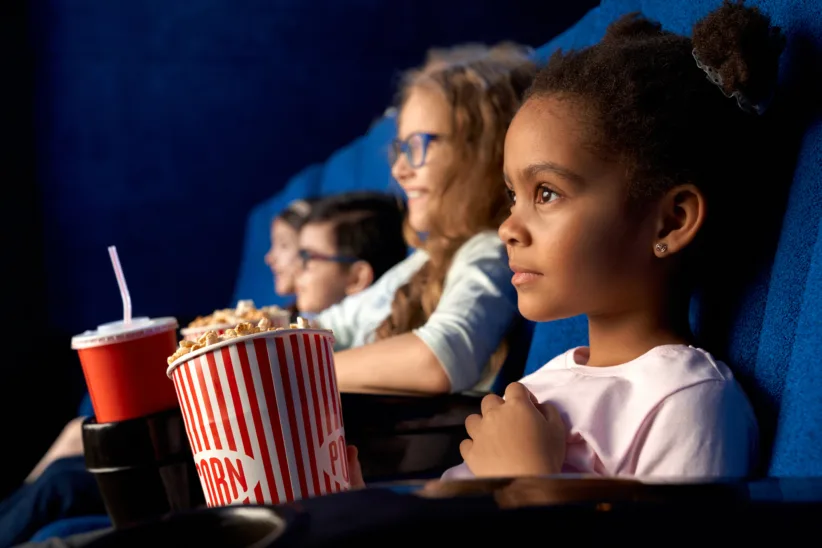 Recently I was at a PG-rated movie with my 11-year old and her friend. Behind us were two moms and a group of kids ages 4-6. I had read reviews that said the movie was not recommended for children under about 9, due to its “creepy, dark” theme. I mentioned this to these moms.
Recently I was at a PG-rated movie with my 11-year old and her friend. Behind us were two moms and a group of kids ages 4-6. I had read reviews that said the movie was not recommended for children under about 9, due to its “creepy, dark” theme. I mentioned this to these moms.
“They’ll be fine,” was the dismissive reply.
They weren’t. They were terrified — whining, asking to leave, and disturbing the rest of us.
Every time I go to a movie, I see kids who shouldn’t be there: young teens in R-rated, violent, sexually explicit films; small kids in sophisticated PG-13 flicks with confusing messages; and, of course, preschoolers in scary PG movies. There are many reasons that parents allow children to see movies for which they are too young. Perhaps they don’t want to inconvenience the rest of the family. Or they say they didn’t realize how “bad” it would be. Some rationalize that all the other kids are seeing the movie. Others just don’t think it’s a big deal.
Actually, taking your child, no matter his age, to movies for which he is not emotionally ready is a very big deal. The messages your child receives can cause or contribute to nightmares, fears, acting-out behavior and sexual promiscuity. The months ahead bring a slew of summer films marketed to begging children and parents looking for an air-conditioned break. So this is the perfect time to think about the type of movies you will allow your child to see and how to communicate this to your child.
Read the Ratings
To begin, pay attention to ratings! They are generally accurate; if anything, they under-rate rather than over-rate a movie. Some G movies actually warrant a PG-rating and I’ve seen several PG movies that are borderline PG-13. This means you need to be cautious about taking a child under 13 to a PG-13 movie. R-rated movies are not meant for preteens or young teens. They always have strong violence, cursing or sexual content. Of course, each child is different and some can tolerate violence more than others, but I don’t believe any tween or young teen should view graphic sexual activity, or the type of cursing that is typical of R-rated movies.
Read the Reviews
It is also critical to read reviews beyond the ratings (and you can’t go by the clip you see on TV). I have found www.CommonSenseMedia.org (a website for parents) to be the best place for comprehensive movie reviews.
Stand Firm
Next, it is important to teach your child that you will not let him see a movie you deem inappropriate simply because he wants to see it, or because everyone else is seeing it. After all, when everyone else is drinking alcohol and using drugs, will you be okay with that? Of course not. Saying no to a movie is good practice!
Therefore, research every movie before you take your child. If you decide it isn’t appropriate, stand firm, no matter how much your child pleads. Explain that she will be able to watch it on DVD when she is a bit older. When she says that everyone is seeing it, offer to call everyone’s parents to check — you’ll soon find out that you’re not the only “mean” parent on the block!
Remember, your child’s emotional health is more important than the latest movie. This really is a fight worth having.
DR. SUSAN BARTELL is a nationally recognized child, teen and parenting psychologist and award-winning author. Her latest book is Dr. Susan’s Girls-Only Weight Loss Guide. You can learn more about Dr. Bartell at www.drsusanbartell.com.





















